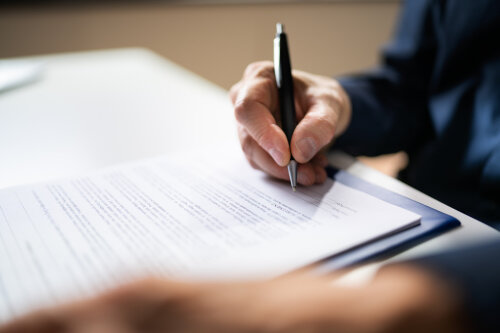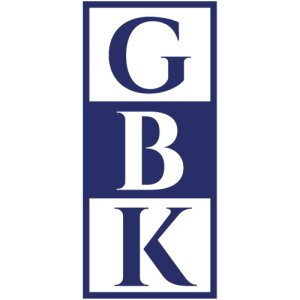Best Brain Injury Lawyers in Timmins
Share your needs with us, get contacted by law firms.
Free. Takes 2 min.
List of the best lawyers in Timmins, Canada
About Brain Injury Law in Timmins, Canada
Brain injury law in Timmins, Canada, is a specialized field that addresses the legal aspects and rights of individuals who have suffered traumatic or acquired brain injuries. These injuries can occur from various incidents, such as motor vehicle accidents, falls, sports injuries, or medical malpractice. The legal landscape in Timmins is shaped by both provincial and federal laws, ensuring victims receive the necessary compensation and support for their injuries. Legal professionals in this field work to protect the rights of brain injury victims, helping them navigate through complex legal processes to obtain fair settlements and justice.
Why You May Need a Lawyer
Suffering a brain injury can have profound and lasting impacts on a person’s life. Here are common situations where legal help may be necessary:
- **Claiming Compensation**: If you or a loved one has sustained a brain injury due to someone else's negligence, a lawyer can aid in pursuing compensatory damages to cover medical expenses, lost wages, and rehabilitation costs.
- **Insurance Disputes**: Brain injury claims often involve complicated interactions with insurance companies. A lawyer can help ensure that your rights are protected and work to get you the benefits you deserve.
- **Establishing Liability**: Proving who is responsible for a brain injury can be challenging. Legal counsel can assist in gathering evidence and building a strong case to establish liability.
- **Long-term Care Planning**: Legal advice may be needed to create plans for long-term care arrangements and support for those rendered incapacitated by a brain injury.
- **Advocating for Your Rights**: Legal professionals can help advocate for your rights in court or with other involved parties, ensuring your interests are adequately represented and protected.
Local Laws Overview
In Timmins, Ontario, brain injury law is governed by both provincial regulations and national statutes. Key aspects include:
- **Negligence and Liability**: Establishing negligence is crucial in brain injury cases. The injured party must prove that another’s lack of care directly led to the injury.
- **Statute of Limitations**: There is a limited timeframe within which legal action can be initiated. It's essential to act promptly to safeguard your right to compensation.
- **Insurance Regulations**: Ontario has specific regulations regarding automobile insurance and accident benefits, which play a significant role in many brain injury cases.
- **Disability Support**: Provincial programs may offer support to brain injury victims, but these often require legal guidance to access effectively.
- **Personal Health Information Protection Act (PHIPA)**: Governs the collection, use, and disclosure of personal health information, crucial in brain injury cases involving medical records.
Frequently Asked Questions
What qualifies as a brain injury?
A brain injury refers to any damage to the brain that results in impairment of cognitive, physical, emotional, or independent functioning. This can include traumatic brain injuries from external forces or acquired brain injuries from non-traumatic events, such as strokes.
How do I prove that the injury was caused by someone else's negligence?
Proving negligence involves demonstrating that the other party owed a duty of care, breached that duty, and that breach directly caused your injury. This usually requires gathering evidence, such as witness statements, expert testimonies, and medical records.
What compensation can I claim for a brain injury?
Compensation can cover medical expenses, rehabilitation, lost income, pain and suffering, and long-term care needs. The exact amount depends on the case specifics.
How long do I have to file a lawsuit for a brain injury?
In Ontario, the general limitation period for filing a personal injury claim is two years from the date of the injury. However, specific circumstances may alter this period, so it's advisable to consult a lawyer promptly.
Do I need a specialized lawyer for a brain injury case?
Given the complexity and specific nature of brain injuries, hiring a lawyer with specialized experience in this area can be beneficial. They will have the expertise to handle the intricacies involved effectively.
Will my case go to court?
Not necessarily. Many brain injury cases are settled out of court through negotiations. However, if a fair settlement isn't reached, the case may proceed to trial.
How can a lawyer help with insurance claims?
A lawyer can help ensure insurance documents are correctly filed, negotiate settlements, and advocate for your rights if disputes arise, increasing the chances of a favorable outcome.
What role does fault play in my case?
Fault determines who is legally responsible for the injury. It impacts the ability to claim compensation, and Ontario follows a "fault" insurance system where the responsible party pays for damages.
Can I receive compensation if I'm partially at fault?
Yes, you may still receive compensation even if you are partially at fault, though the amount may be reduced by your percentage of fault. This is known as "contributory negligence."
What should I do immediately after a brain injury event?
Seek immediate medical attention, document the event and injuries as best as you can, and contact a lawyer to understand your rights and the best steps forward.
Additional Resources
For further assistance and support, the following resources can be invaluable:
- **Ontario Brain Injury Association (OBIA)**: Offers support and information for brain injury survivors and their families.
- **Timmins & District Hospital**: Provides medical care and support services for brain injury patients.
- **Legal Aid Ontario**: Offers legal assistance to those who qualify financially, ensuring access to necessary legal services.
- **Acquired Brain Injury Network of Ontario**: Works to improve community-based services for individuals with acquired brain injuries.
Next Steps
If you or a loved one has suffered a brain injury and require legal assistance, consider taking the following steps:
- **Consult a Lawyer**: Schedule a consultation with a legal professional who specializes in brain injury cases to discuss your situation and options.
- **Gather Evidence**: Collect any available documentation related to the injury, including medical records, accident reports, and witness information.
- **Understand Your Rights**: Familiarize yourself with your legal rights and the compensation you may be entitled to so you can make informed decisions.
- **Contact Local Support Groups**: Reach out to local organizations for support and guidance as you navigate the aftermath of a brain injury.
Lawzana helps you find the best lawyers and law firms in Timmins through a curated and pre-screened list of qualified legal professionals. Our platform offers rankings and detailed profiles of attorneys and law firms, allowing you to compare based on practice areas, including Brain Injury, experience, and client feedback.
Each profile includes a description of the firm's areas of practice, client reviews, team members and partners, year of establishment, spoken languages, office locations, contact information, social media presence, and any published articles or resources. Most firms on our platform speak English and are experienced in both local and international legal matters.
Get a quote from top-rated law firms in Timmins, Canada — quickly, securely, and without unnecessary hassle.
Disclaimer:
The information provided on this page is for general informational purposes only and does not constitute legal advice. While we strive to ensure the accuracy and relevance of the content, legal information may change over time, and interpretations of the law can vary. You should always consult with a qualified legal professional for advice specific to your situation.
We disclaim all liability for actions taken or not taken based on the content of this page. If you believe any information is incorrect or outdated, please contact us, and we will review and update it where appropriate.









